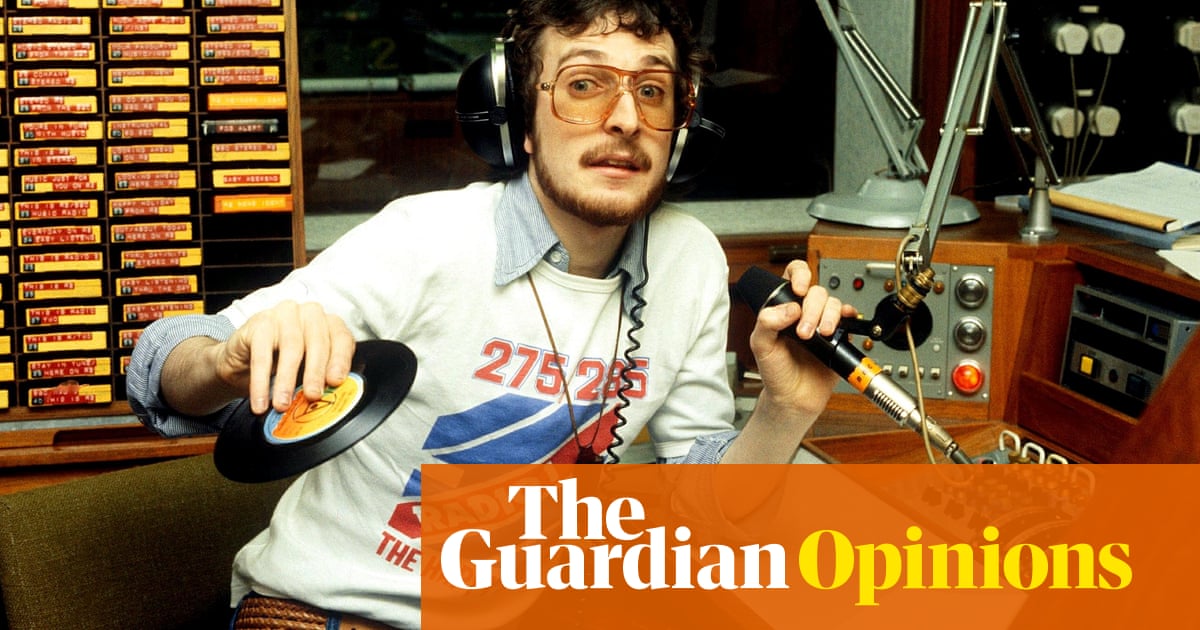
It was the sound that the goal made that was particularly stirring. As Mohamed Salah’s impudent chip against Manchester City arced into the net the noise it made was noticeably different to the goals that had preceded it. The crackle from the crowd had added gasps of astonishment to mark the spectacular, plus the dizzying wow-factor to signal a flurry in quick succession, mixed in with standard goal jubilation.
For those of us who somehow managed not to be watching the game of the season live on telly (or even luckier in the flesh at Anfield), it still managed to be an extraordinary radio experience. The emotional soundscape made it obvious this was no ordinary match.
“It’s the old line that the pictures are better on radio,” smiles Rob Nothman, former producer and now a broadcasting coach. “If you have a quality commentator who can take you to the ground, describe what’s going on, give you all the information, but can also paint pictures, it’s evocative, it can grip you.”
Deciphering the nuances of live football from what you can hear over the radio was a much more useful skill a generation or so ago when there was significantly less action on television. Childhood memories of having a little speaker or headphone glued to your ear as the only means to follow a crucial match remain vivid. Radio played a huge part in how we consumed the game, a major source of information on goals, formations, news, opinion, atmosphere, you name it.
It feels particularly poignant to reflect on the power of football on the radio to honour the memory of Jimmy Armfield, whose voice, warmth and experience made him a master of this art. “He had knowledge, authority and clarity,” reflects Nothman. “When he opened his jacket he had a variety of medals – great player, great manager and he was able to bring that across as a broadcaster but in a sympathetic way. Such a lovely man, we will all miss him terribly.”
In this modern media age it’s realistic to wonder what the future holds for football on the radio. The younger fan is brought up on a diet of goals broadcast in a flash over a mobile phone, instant Twitter opinions, fan TV channels and so on. With attention spans changing to suit current social media trends, watching a full game without any distraction is more of a challenge. Kids tend to prefer highlights, shorter bursts, more action and less analysis.
Mark Chapman, the broadcaster who works across various media, is a staunch defender of the special qualities of radio. It remains, he explains, a significant way to absorb football even in this quick-refresh world. “I still maintain it is the fastest way of getting the goals,” he says. “TV is on a slight delay, and we will certainly get it before an app is updated. In this fast-moving world, radio is still the most immediate way of getting your information.
“If there is a massive news story, if you think what needs to be mobilised from a TV point of view to start covering it, that takes a fair amount of time compared to radio who can have someone on the phone within 10 seconds and straight through to a presenter. Just because radio has been around for the longest time compared to the other mediums it still to me feels very modern.
“There is an immediacy of wanting to see the goal and Twitter and so on but there is still a place for live commentary on the game, for debate. The point is listening to a piece of radio might not be the same as watching it but in some ways it can be better. This commentary might be amazing! If you get the right team radio is a much better way to consume a dreadful game.
“I will give you an example: I was driving back from the FA Cup draw in Coventry a couple of weeks ago and that Monday night game was Brighton v Crystal Palace. The 5 Live commentary team was Jonathan Pearce and Steve Claridge and it was hilarious. I couldn’t tell you much about what happened in the first half but as a listen on the radio it was great.”
This week is the anniversary of the first live broadcast of a football match over the airwaves. On 22 January 1927, from a wooden hut that resembled a garden shed erected at Highbury, the top-flight clash between Arsenal and Sheffield United was broadcast over the BBC’s radio service.
A notable detail is that debate to get permission for the radio experience at sports grounds had gone on for some time as the authorities were concerned that live broadcasts would have an impact on attendances and affect ticket sales. The very first commentator was the splendidly named Henry Blyth Thornhill Wakelam – a former rugby player.
Chapman’s love for the magic of football on the radio endures. “There is still nothing better in any of the jobs that I do than saying: ‘It’s 5 o’clock, you are listening to 5 Live and this is Sports Report. You know there are two million people in cars coming back from sport ready to listen to the headlines.” Cue that music … The Guardian Sport












